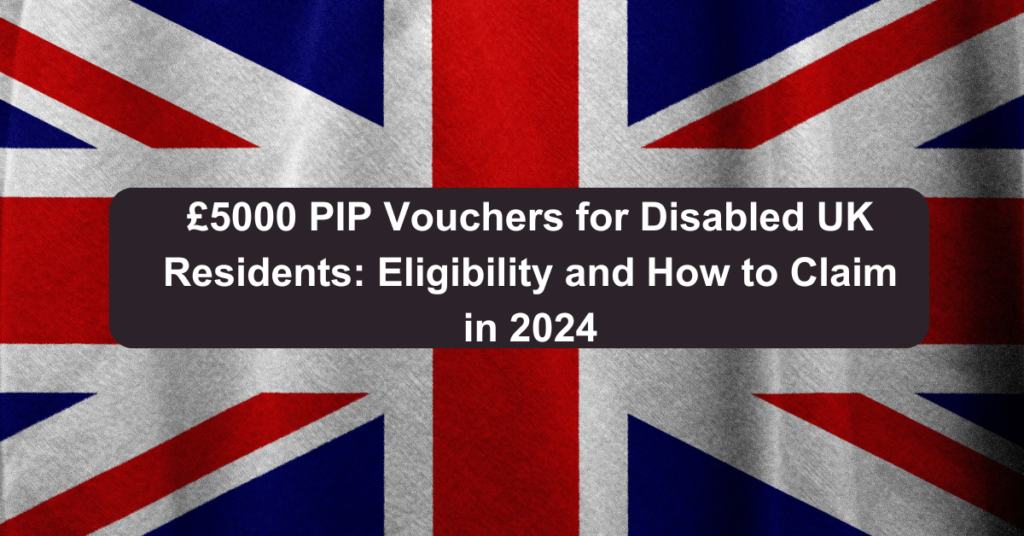The UK government is planning big changes to the Personal Independence Payment (PIP) system, which supports people with long-term disabilities. Since its launch in 2013, PIP has been a lifeline for many, but it’s often criticized for being too complicated. The new proposals aim to simplify the process, but concerns remain about whether these changes will make it easier or harder to access the support. Many are calling for a fairer system that better meets people’s needs without adding more challenges.
What Are the Proposed Changes?
- Catalogue Scheme: Instead of getting cash, people can choose from a list of approved items, such as mobility aids or medical equipment. These items would either be free or offered at a discount.
- Voucher Scheme: People might receive vouchers to spend on certain products or services.
- Receipt-Based System: You’d buy what you need and then submit receipts to get part of the money back.
- One-Off Grants: For bigger expenses like home modifications, people might get a single lump sum instead of regular payments.
These alternatives are being suggested to better control costs and ensure people are getting the help they need for specific items. But the concern is that taking away cash payments could limit financial flexibility, making it harder for people to pay for everyday things that aren’t covered by vouchers or catalogues.
The Labour Party, which won the recent election, hasn’t commented on these changes yet. Some say they’re waiting to see what people think before making a decision. Meanwhile, several disability rights groups are worried about how these changes could impact people’s financial independence.

Other Proposed Reforms
There’s also talk about changing how the Work Capability Assessment (WCA) works. This is the process that determines if someone qualifies for disability benefits based on whether they can work or not. If the changes go through, around 424,000 people might lose up to £400 a month. The goal of the changes is to encourage disabled people to return to work without the fear of losing all their benefits, but it could put many in a tight spot.
Current System Issues
Since its start in 2013, PIP has been a crucial support for people with disabilities, helping them cover extra costs related to their care and mobility. However, the system has been criticized for its complicated assessment process, which makes it difficult for some people to qualify. Many think the eligibility rules are too strict, stopping those who really need help from getting it.
What Changes Are on the Table?
- Simplifying Assessments: The government wants to make the process easier by allowing some people to qualify with just a healthcare professional’s report, skipping the lengthy assessments.
- Removing Reassessments for Permanent Conditions: For people with lifelong disabilities, constant reassessments are frustrating. The government is considering removing these for permanent conditions to reduce stress and paperwork.
- Updating the Points System: PIP eligibility is based on a points system that looks at how a person’s condition affects daily life. The government wants to update this to reflect the actual costs of living with a disability, making it fairer.
Public and Advocacy Group Responses to PIP Reforms
The reactions are mixed. Some are happy about the idea of simplifying the process and getting rid of reassessments. But the idea of replacing monthly cash payments with one-time grants or catalogues is worrying for many. They feel it could limit their ability to handle everyday expenses, leaving them financially vulnerable.
Many advocacy groups, like Disability Rights UK and Mind, strongly oppose these plans. They believe that switching to vouchers or catalogues will harm disabled people’s ability to manage their finances and access necessary support. They want a system that provides more flexibility and financial freedom. Other charities, like the Child Poverty Action Group, also argue that these changes could negatively affect disabled families and children.
What’s Next?
The government is reviewing all the feedback from disability groups, healthcare experts, and claimants before making a final decision. If these reforms go ahead, they’ll need to address the concerns about financial stability and support. The goal is to create a PIP system that meets the real needs of people with disabilities without taking away their financial freedom. But for now, everyone is waiting to see what changes, if any, will be made.
